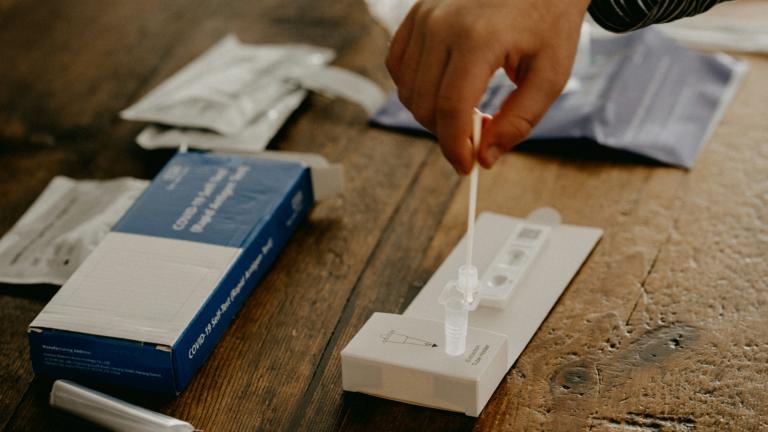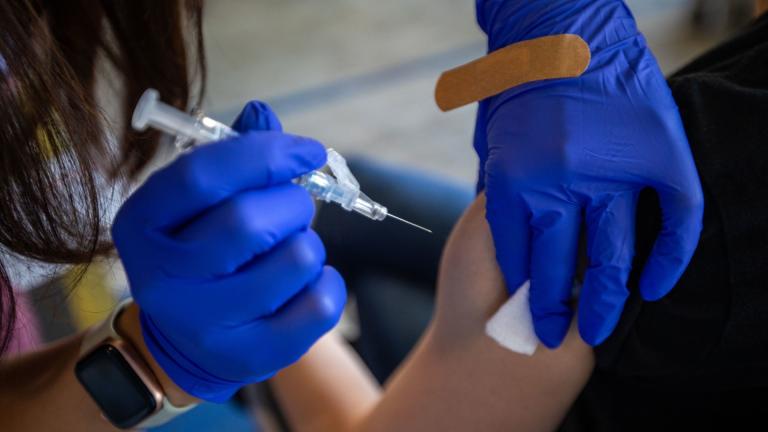Many of us refer to COVID-19 as “coronavirus” – but that’s actually the name of a family of viruses that also includes things like SARS and the common cold.
A new study shows that vaccination against a coronavirus or a previous infection can provide protection against other viruses in that same family – and it shows that generic vaccines could be developed to protect against future viruses.
“A coronavirus is one of the many families of viruses that causes disease in humans. In this case, it’s an RNA virus and it’s divided into … sub-families,” said Pablo Peñaloza-MacMaster, one of the study’s authors and an assistant professor of microbiology and immunology at Northwestern’s Feinberg School of Medicine. “Coronavirus is a simplistic way of saying a group of many different viruses that share an RNA genome and that have specific behaviors.”
The study showed that antibodies in plasma from humans who had been vaccinated against COVID-19 reacted to SARS-CoV-1 (commonly referred to as SARS) and the common cold. It also showed that mice vaccinated against SARS had an immune response when exposed to COVID-19, and that previous coronavirus infections can also protect against other coronaviruses.
It also found that mice vaccinated against COVID-19 had some cross-protection against the common cold, but that the immune response was not as strong.
“(The virus) that causes the common cold is more distantly related. You start seeing partial protection, but not as robust,” Peñaloza-MacMaster said. That means it might not be possible to develop a so-called “universal” vaccine to protect against any and all coronaviruses, since some are more closely related than others – but there’s still a promising prospect.
“The more realistic goal is to develop generic vaccines that we would stockpile and have them ready. In the case that you have a related coronavirus in the future, you deploy the vaccine that is … more related,” Peñaloza-MacMaster said. “If we can develop vaccines that target (existing) coronaviruses, in the future when a cousin of that coronavirus comes out, we already have a vaccine that is not 100% tailored for that new epidemic but can still provide protection.”
Read the full study on cross-protection here.
A separate COVID-related study Peñaloza-MacMaster also worked on was recently published, demonstrating surprising results when it comes to vaccination dosage. During an AstraZeneca vaccine trial, participants were accidentally given a smaller first dose and a standard second dose. For reasons that aren’t yet clear, that yielded a better immune response than giving two standard sized doses. While Peñaloza-MacMaster cautions that it’s still important to follow FDA guidance on vaccine dosing, he says it could offer guidance for future changes.
“When it comes to the immune system, sometimes less is more,” he said. “It’s not very clear why that is the case, but it seems like with the lower (first) dose you get … quantitatively less of a response, but qualitatively it’s better.”
Read the full study on the AstraZeneca trial here.








